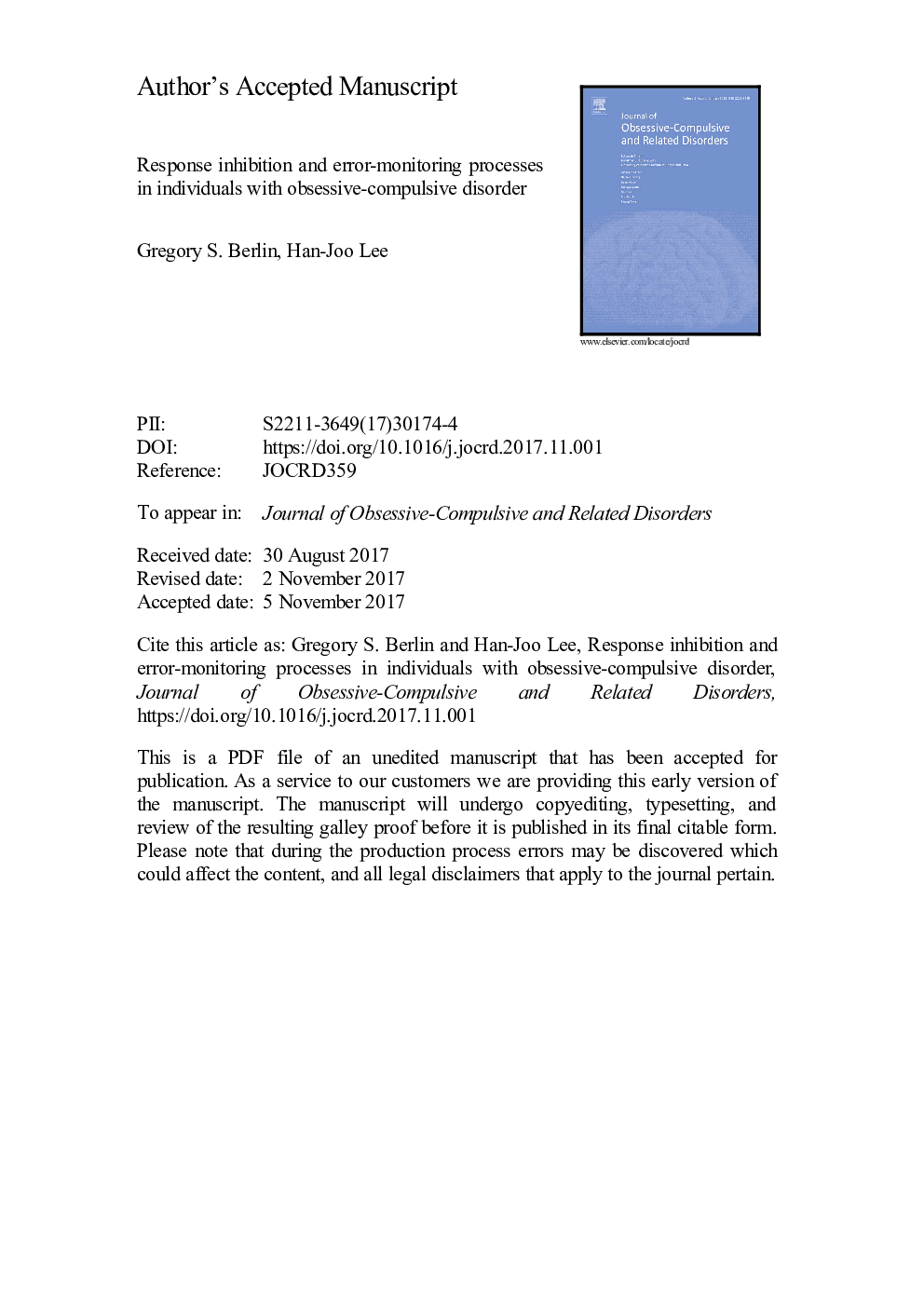| Article ID | Journal | Published Year | Pages | File Type |
|---|---|---|---|---|
| 7269036 | Journal of Obsessive-Compulsive and Related Disorders | 2018 | 28 Pages |
Abstract
Response inhibition (RI) has been putatively linked to the symptoms of OCD. Despite the enticing link between RI and OCD, there are points in the relationship that require clarification. We examined the RI-OCD relationship taking into account a) the potentially differential pattern of RI-OCD relationship between obsessions and compulsions, and b) the potentially confounding effect of negative affect, particularly in regards to depression. Additionally, we investigated how error-monitoring processes in the inhibitory context account for OCD symptoms. Results showed that the RI-OCD relationship is robust in regards to compulsion symptoms, but not for obsessions, even when controlling for negative affect. Additionally, while individuals with OCD display behavioral slow-down following commission errors on the stop-signal task, slow-down following successful inhibition is significantly related to compulsion symptoms. Findings suggest that future studies investigating RI in OCD should expand their scope by incorporating multiple relevant parameters of inhibitory processes to understand a more complete picture of RI deficits and their association with heterogeneous clinical presentations of OCD.
Related Topics
Health Sciences
Medicine and Dentistry
Psychiatry and Mental Health
Authors
Gregory S. Berlin, Han-Joo Lee,
